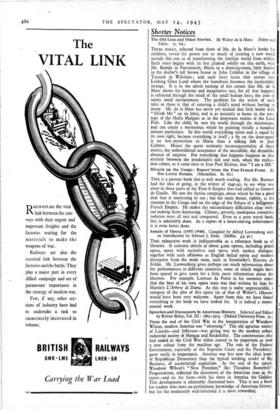Speeches and Documents in American History. Selected and Edited
by Robert Birley, Vol. III : 1865-1913. (Oxford University Press. 31.) FROM the end of the Civil War to the inauguration of Woodrow Wilson, modern America was " aborning." The old agrarian society of Lincoln—and Jefferson—was giving way to the modern urban, industrial society of Morgan and Rockefeller. The controversies that had ended in the Civil War either ceased to, be important or took a new colour from the machine age. The role of the Federal Government, especially of the Supreme Court and the Presidency, grew vastly in importance. America was less now the ideal home of Republican Democracy than the typical working model of Big Business, of unrestricted capitalism. At the end of the epoch. Woodrow Wilson's " New Freedom," like Theodore Roosevelt's Progressivism, reflected the discontent of the American man in the street—and on the farm—with his share in America the Golden. This development is admirably illustrated here. This is not a book for readers who have no preliminary knowledge of American history, but for the moderately well-informed it is most rewarding.


























 Previous page
Previous page